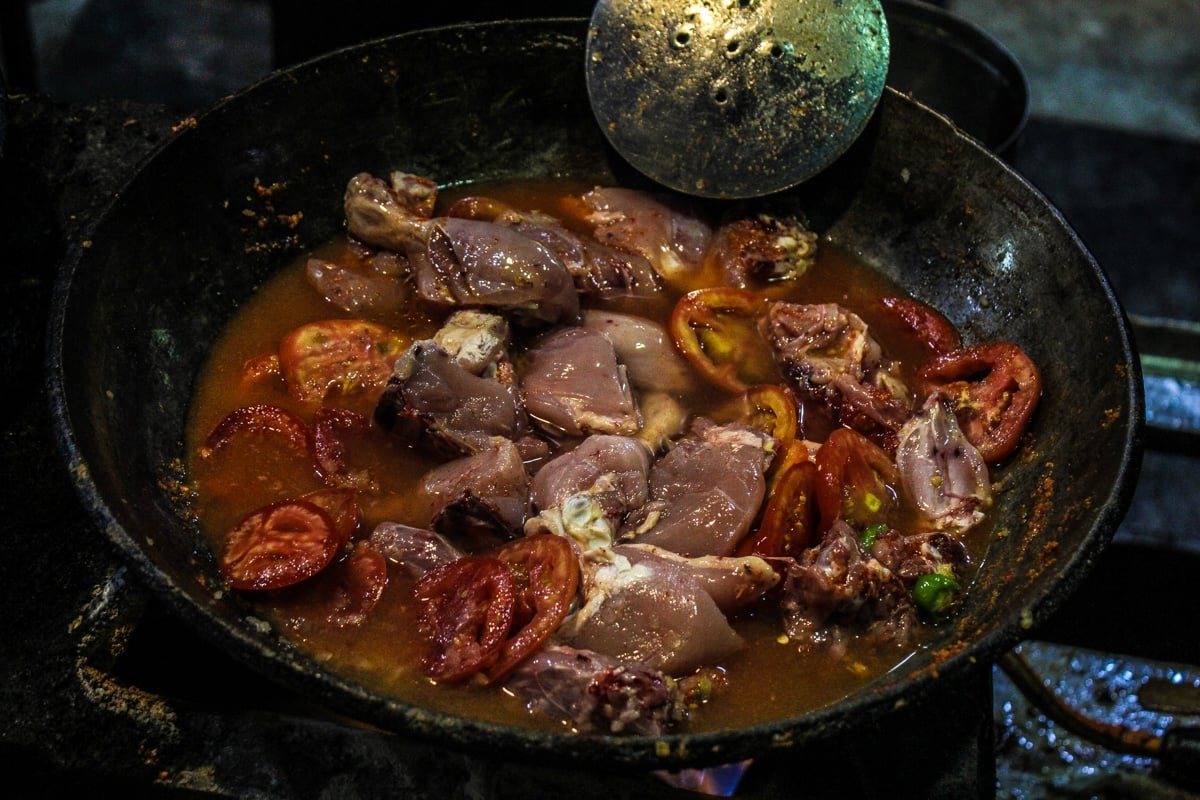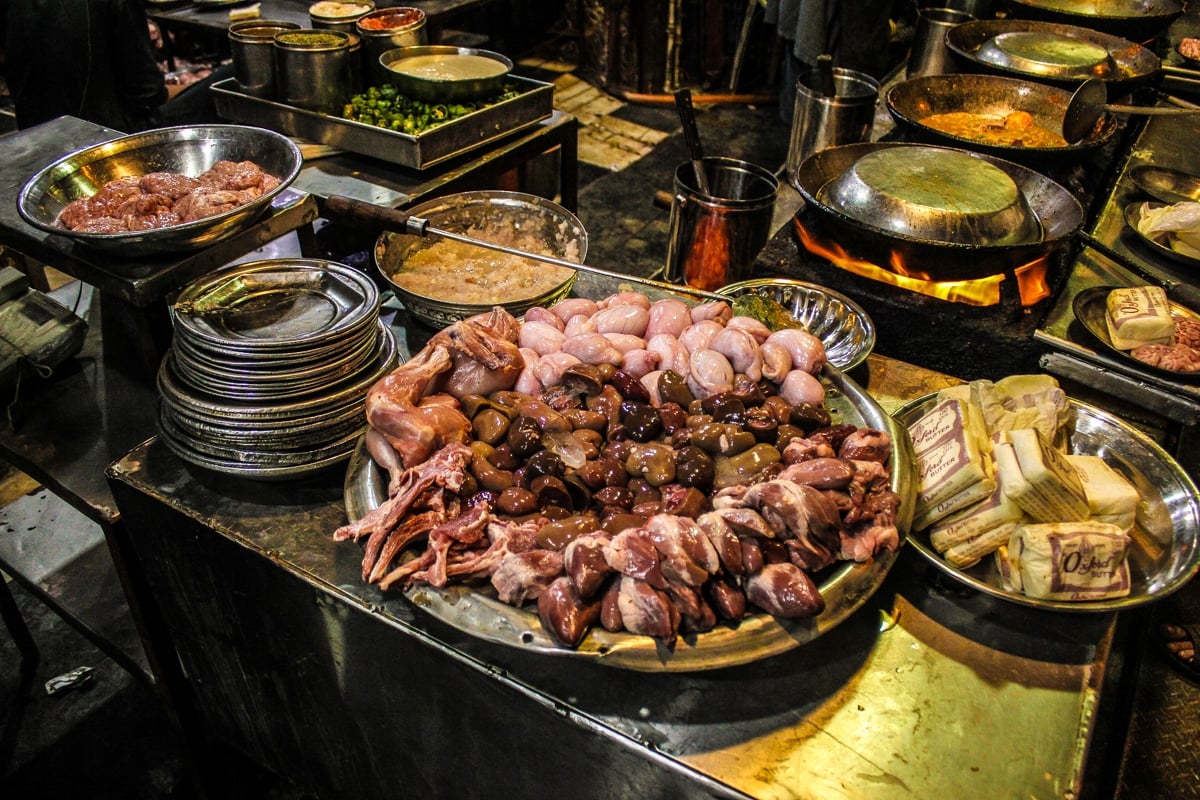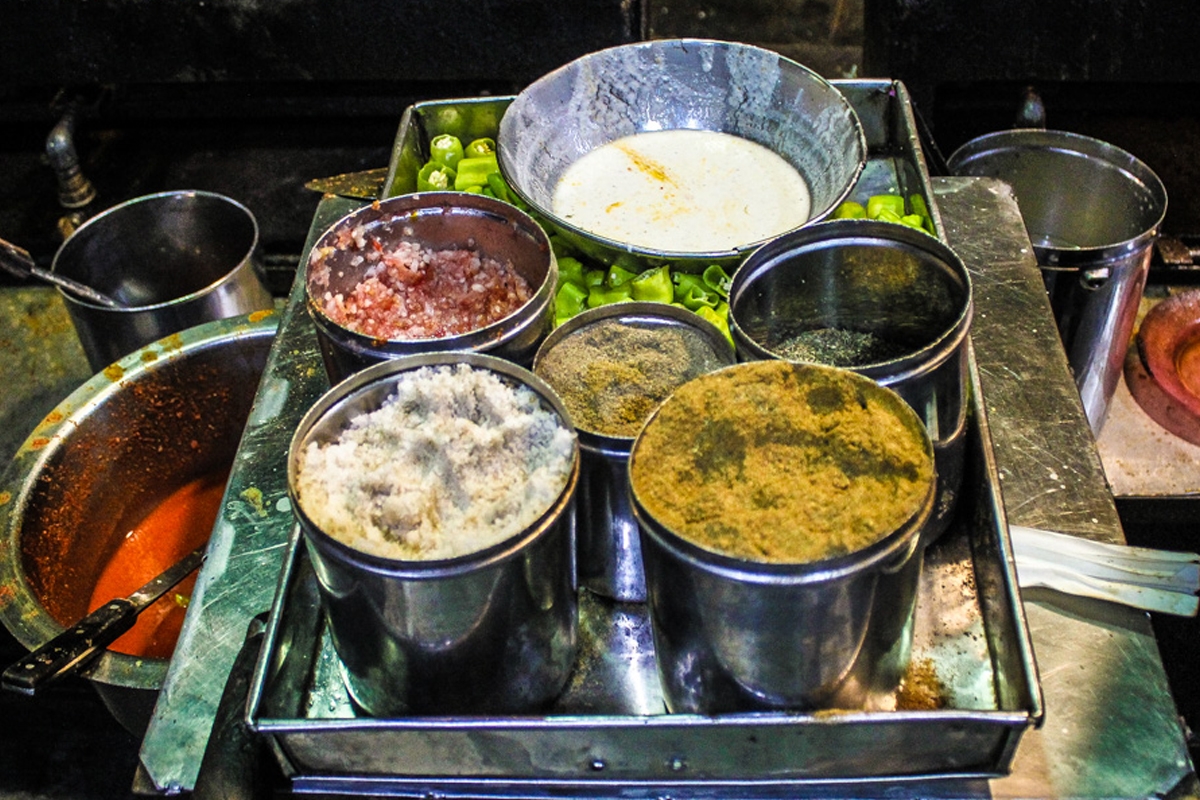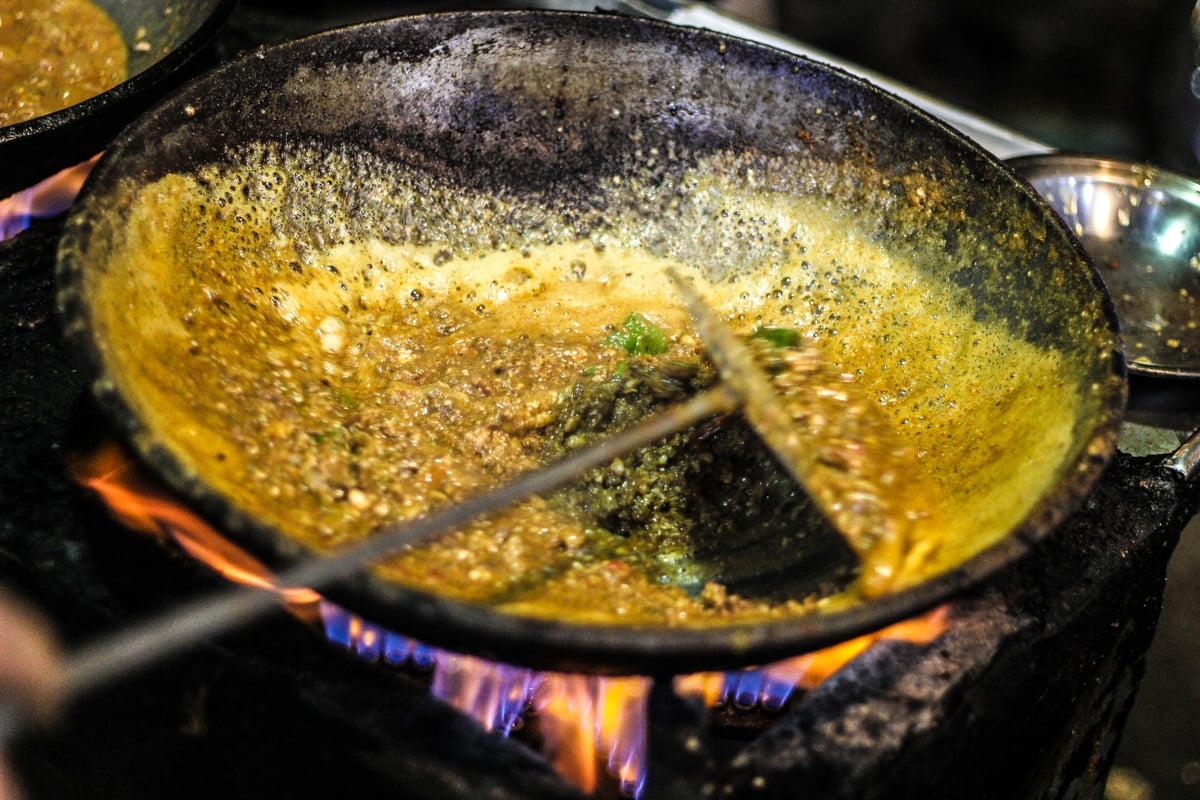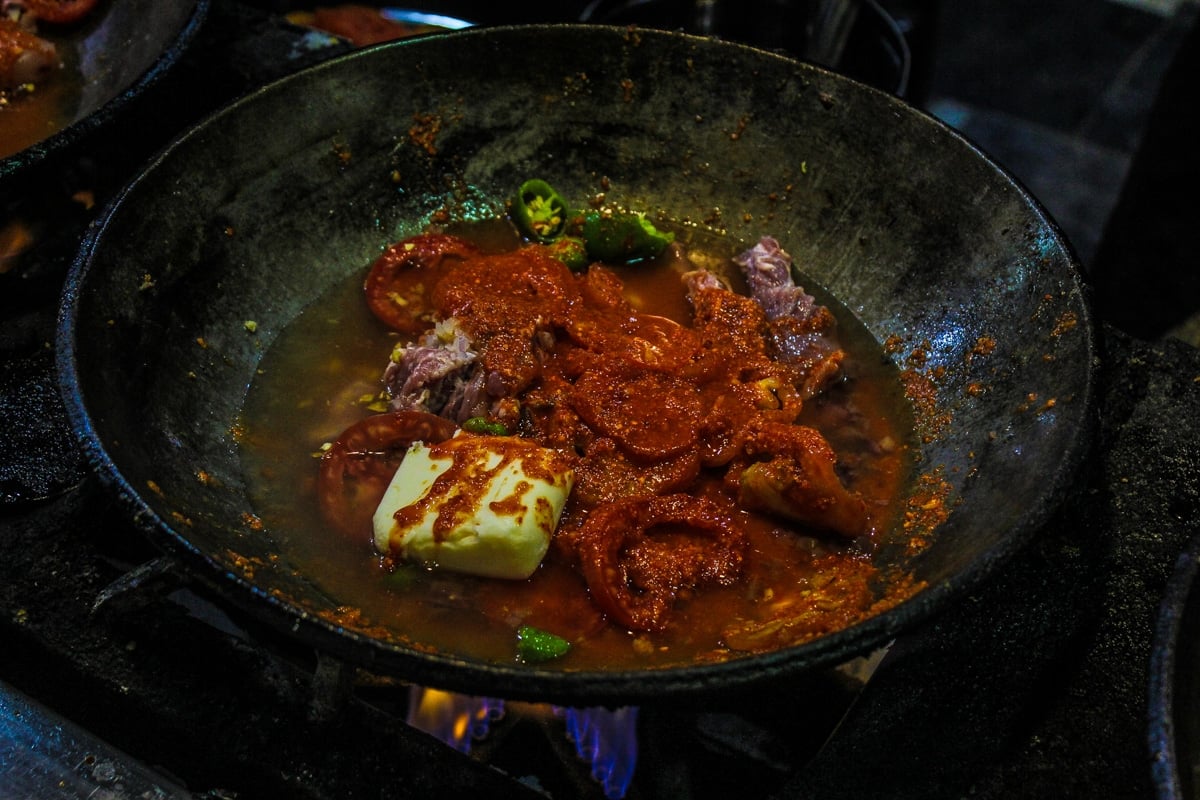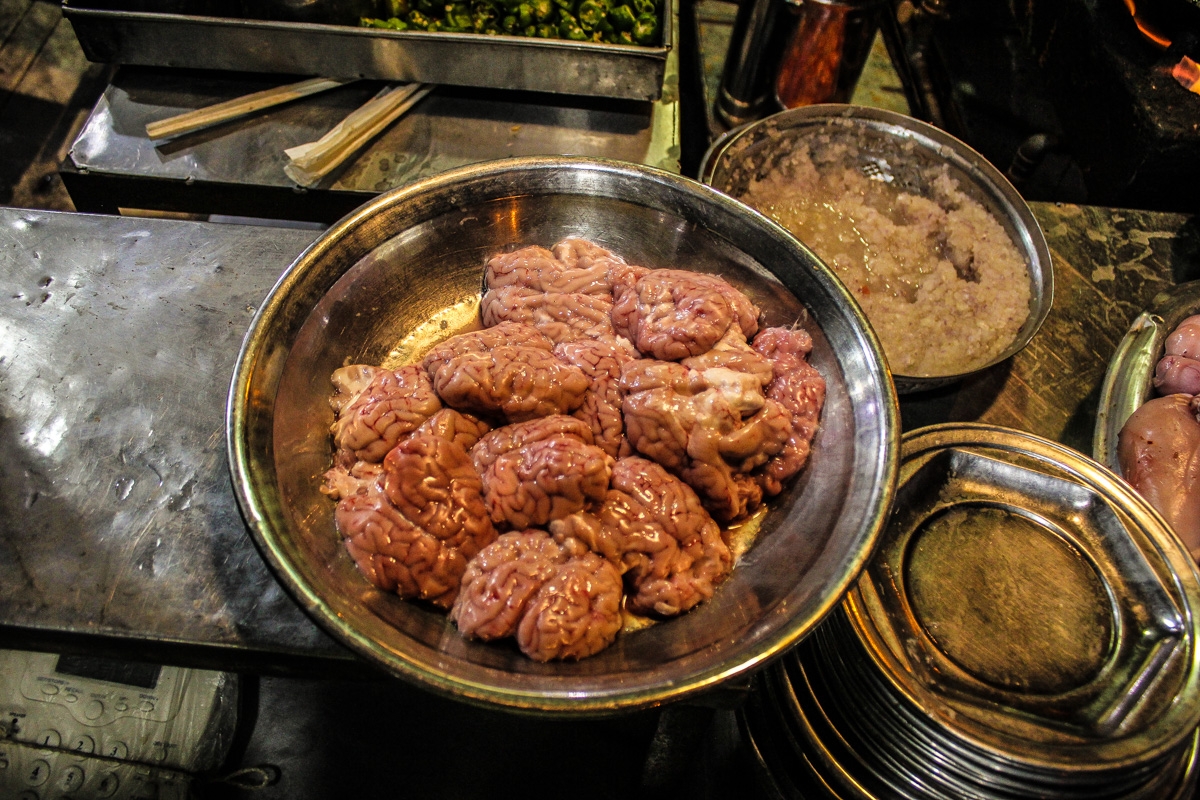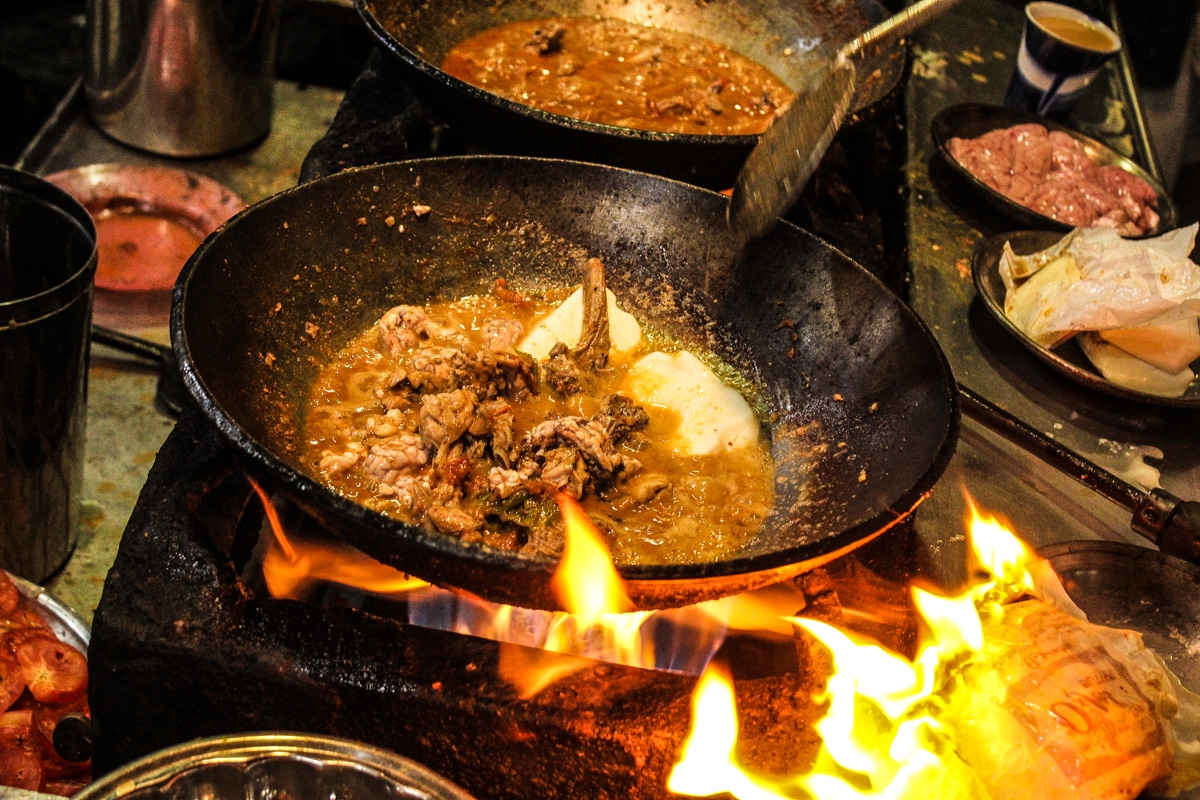

“There is no love sincerer…than the love of food.”
This deliciously invigorating food for thought was cooked and served to the whole world by famous Irish playwright George Bernard Shaw, whose witticism was playfully proverbial. It’s hot forever. Shaw was neither trying to over-egg the pudding nor soup up a wild goose of a thought; he was simply calling a plate of chicken karahi a plate of chicken karahi. I wish he had been to Café Lazeez, which means tasty eatery, to find out what that means. Alas! Shaw died in 1950.
“Karachiites are ‘mouth over meals’ in love with good food. They are diehard fans of a host of savouries, but karahi gosht (chicken, mutton, dumba (fat-tailed sheep), beef, etc) is their favourite. It’s true the dish continues to evolve and many new varieties have made inroads into the street cuisine scene as well as homely kitchen and canteens nowadays, but we only serve the original karahi,” Tariq Mateen, the owner of Café Lazeez, one of the oldest in eateries in Karachi, told The News.

Mouthwatering Karahi
The name of the dish is a combination of two words: karahi, also called balti (bucket) in some parts of the rugged frontier region, is a round-bottomed, wok-like heavy cast-iron cooking vessel mostly without handles and gosht, which simply means meat. Karahi gosht, believed to have its origins in deep north, is a meat curry prepared by frying pieces of meat with tomatoes, green chili, ginger, and garlic in a karahi. It’s tasteful beauty lies in its simplicity.
“No variety can beat the taste of original karahi with all the traditional seasoning, ingredients, and spices. This work demands extreme care as one miscalculated dash of a spice, inappropriate flame, or too much or too little oil can spoil the broth, even when there is just one cook,” he added.
Goes without saying that commercial cooking can be an extremely delicate business demanding fervent meticulousness when your hard-earned prestige is at stake. You have to keep a number of things together for your dishes to turn out to be just perfect. Shakespeare was right in writing that: “Easy, sir. It's a bad cook who can't lick his own fingers.”
“It's a biting reality that a food business whips up its success by having too many pots on the fire and getting away with it, so to speak. It's a multifactorial mix that doesn't have a simple answer. Recipe is only a part of a complicated whole here. The quality of ingredients, the culinary acumen of the cook, the sense of serving, and the practice of general hygiene also matter. Moreover, when it comes to food and cooking, people love to eat only what latches onto their taste receptors. We are in the business for over 50 years and have earned a name by delivering tastes that only we can create,” he said sharing the secret of their business’s success.

Everybody wants to have delicious food and at the end of the day, when you reach your lair and are hungry as a bear, it’s all about food and nothing but food and if it is good enough to turn you on then it’s about having it again and again until it sticks to your ribs. Forget not that moderation, caution, restraint, and conquering unhealthy cravings is equally important. Bad eating habits can turn you into a tub of lard or a permanent source of income for infirmaries and in some cases you can eat yourself out of your house and home. So if you want to save yourselves from purging then don’t binge.
We are serving the third generation of our satisfied customers, over the years we have mastered the taste. It is very important for you to have command on cooking to survive in the restaurant business. If you are depending on others then you can’t survive for long.
“We started off with kata-kat and later introduced karahi, chargha (deep fried chicken), and sajji (whole chicken or lamb slow cooked around fire). These are our specialties and we have limited ourselves to them to maintain our standard,” he said and added, “the credit of introducing kata-kat in Karachi goes to us.”
Kata-kat is a peculiar variety meat concoction, the origin of which is not clear but is claimed to have been innovated by Pakistani street-food-master-chefs. The credit of its invention is disputed by Karachi and Lahore. It is an all-time hit across the country. Kata-kat is an assortment of offal or organ meats. The dish is made by putting together testicles, brain, kidney, heart, liver, lungs and some muscle meat of mostly goat or in some cases cow or both. As far as the term kata-kat is concerned, it is onomatopoeia of the kind of metallic clippety-clop sound produced when two broad-knife-spatulas are rhythmically struck on the large hot griddle to fine-mince the mixture of offal, greens, and spices, while it simmers to mouth-watering perfection.
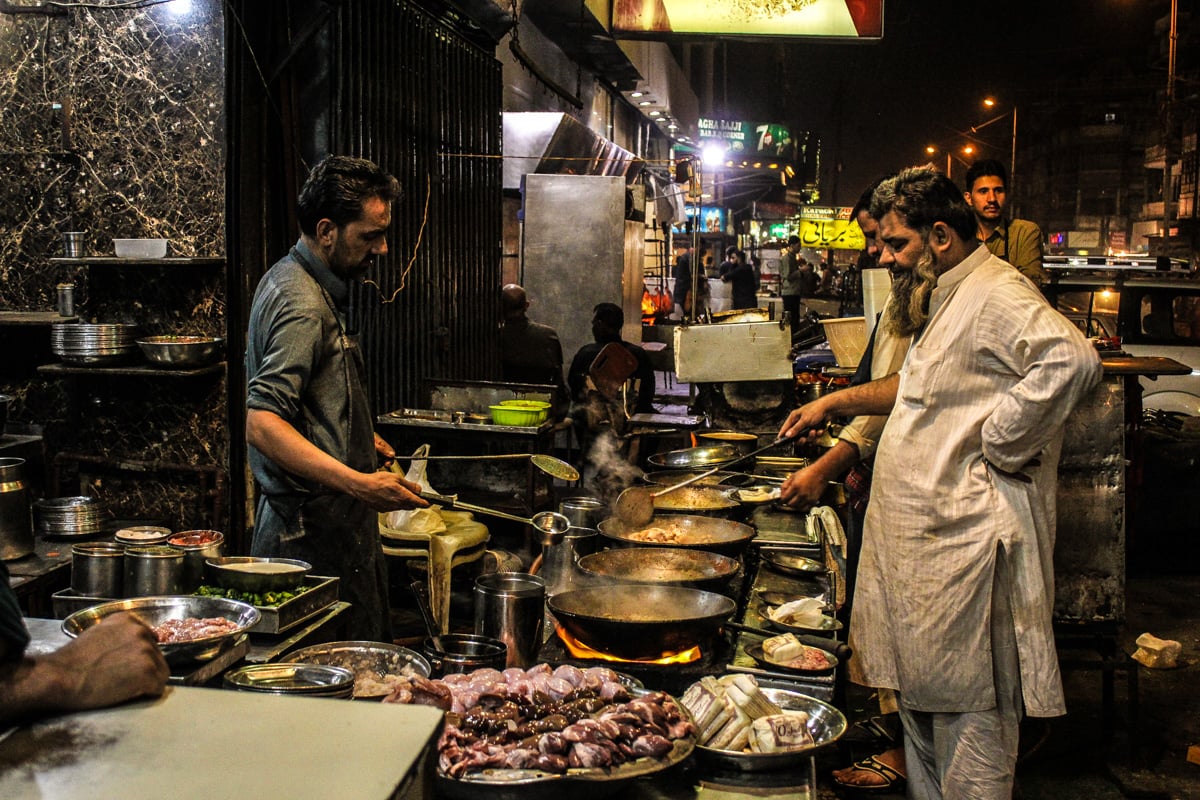
Chief Chef Tariq Mateen (R)
Food is not only a means of physical nourishment but also mental wellbeing. If what’s on your plate is not going down the hatch that easily then you are bound to end up cheesed off. After having to eat bland food, you might start stewing in your own juices and feel like you are in thick soup, while your mood drops like a sack of potatoes. Appetizing edibles pick you up and keep you full of beans.
“We also belong to the Jamiat-e-Punjabi-Saudagaran-e-Delhi. Before the independence, my grandfather used to run a small soap factory in India.
My father, Hafiz Abdul Mateen, migrated to Karachi from New Delhi soon after the partition in 1948. He took quite a risk by launching an eponymous restaurant in 1970 on Burns Road. By the grace of Allah Almighty, his efforts paid off. I joined him at in 1978. I was only 8 then. Later in 1993, I bought another shop and renamed the expanded eatery as “Café Lazeez.” Many people still remember us by our old name. Ask them about “Hafiz Jee” and they will instantly lead you to us,” the owner said recapping the history of his family business.

Subcontinental foods are traditionally spice-intensive. According to scientists the pleasure sensation of spicy foods is absolutely unique to humans.
"People from outside the city like less spicy food; however, with rising awareness among the masses about the implications of spices and oily food, even Karachiites have started ordering mild-tasting meals,” he said shedding light on the latest eating trends.
Also, spicy edibles make you perspire, which helps decrease the temperature of the body. It is because the spices speed up the metabolism, which makes you feel a little hotter, hence sweating. One more thing, the hot climate naturally suppresses appetite and spicy foods stimulate it. That’s why spices are good for you, if you can comfortably tolerate the pleasure of the pain. Eating hot foods like peppers allows us to court danger without risk, activating areas of the brain related to both pain and pleasure, according to The Wall Street Journal.
“Two decades ago, people ate out far less often compared to today. Now dining out has become fully woven into the fabric of our society. It’s also an evening's entertainment in and of itself,” he observed.
There’s tons of research to support the theory that 'comfort' foods actually kick in at a molecular level to elevate our mood. That said, you also need to surprise your taste buds off and on and try to acquire new tastes. Thus the adage, “variety is the spice of life” makes sumptuous sense. For that matter, we invented thousands or more ways to add value or rather taste to same raw foods so that we could relish them over and over again without getting bored as well as frustrated to death.
Replying to a question about branching out, he said, “We are neither money-minded, nor greed-driven. Unrestrained expansion always costs quality. So instead of running after money, I want to concentrate on whatever I have on my plate. Our business stands established. Now, we are faced with the challenge of maintaining our name, therefore, I myself monitor the cooking process in the kitchen every day.”
Sharing his only regret with The News, he said because he had jumped in to help his father run the family business at the tender age of eight, he could not get a chance to pursue his education.
“All the struggle and energy that I put into developing our business claimed my childhood as well as education. Now, I wish my children to have the best education possible.”
Talking about the ‘good old days’, he said Burns Road was a political stage, hangout, and battleground all clubbed in one during the seventies. “I have watched many rallies, processions, public meetings, agitation, politicians, etc around here,” he said and added the security unrest, violence, and anarchy have never boded well for the city, but businesses suffer the most.
“Back in 2002, when the law and order situation was comparatively better, the then British consul general had a dainty time at our restaurant. And still many notables frequent us to savour the flavour of our foods,” he said while telling us about the visits of famous persons from different walks of life.
About his routine, he said, they open after sunset and close at around 2 am. “We keep receiving diners well into the night and sometimes we have to refuse them because it’s too late. Orders usually start to line up in the evening. We don’t have a delivery service, but people can place take-away orders over the phone,” he said.










